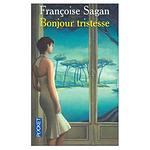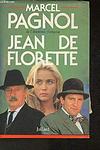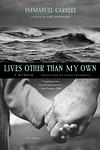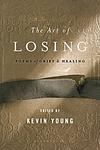The Greatest French "Family" Books of All Time
Click to learn how this list is calculated.
This list represents a comprehensive and trusted collection of the greatest books. Developed through a specialized algorithm, it brings together 300 'best of' book lists to form a definitive guide to the world's most acclaimed books. For those interested in how these books are chosen, additional details can be found on the rankings page.
Genres
The "Family" category of books encompasses stories that revolve around the dynamics, relationships, and experiences of families. These books explore the complexities of familial bonds, including love, loyalty, conflict, and forgiveness. They may focus on different types of families, such as nuclear families, blended families, or extended families, and may cover a range of themes, from coming-of-age tales to domestic dramas. Overall, the "Family" category offers a rich and diverse collection of books that delve into the joys and challenges of family life.
Countries
Date Range
Reading Statistics
Click the button below to see how many of these books you've read!
Download
If you're interested in downloading this list as a CSV file for use in a spreadsheet application, you can easily do so by clicking the button below. Please note that to ensure a manageable file size and faster download, the CSV will include details for only the first 500 books.
Download-
1. Bonjour Tristesse by Francoise Sagan
This novel centers around a 17-year-old girl living with her playboy father in the French Riviera. The pair lead a carefree, hedonistic lifestyle until the father decides to remarry, causing the protagonist to hatch a plan to prevent the marriage and return to their old way of life. The story explores themes of youth, love, and the struggle between desire and morality.
-
2. Eugenie Grandet by Honoré de Balzac
"Eugenie Grandet" is a classic French novel that explores the life of a wealthy and miserly provincial businessman and his daughter, Eugenie. The father's obsession with wealth and his refusal to spend any of it leads to a life of hardship for Eugenie, who is in love with her penniless cousin. The novel delves into themes of wealth, love, sacrifice, and the complexities of human nature, shedding light on the oppressive social norms of 19th-century French provincial life.
-
3. The Bridge Of Beyond by Simone Schwarz-Bart
This novel is an evocative portrayal of several generations of women in Guadeloupe, a tapestry of their joys, sufferings, and resilient spirits against the backdrop of post-slavery Caribbean society. The story centers on the life of Telumee, the last in a line of proud Lougandor women, as she navigates the complexities of love, poverty, and the lingering effects of colonialism. Rich in Creole culture, the narrative weaves together the supernatural with the everyday, creating a lyrical and poignant exploration of the enduring human spirit and the bonds of family, tradition, and heritage that shape our destinies.
-
4. Manon des sources by Marcel Pagnol
"Manon des Sources" is a poignant tale set in rural France. It is the story of a young woman, Manon, who lives in the French countryside and discovers that her family's water source has been blocked by two neighboring farmers. To avenge her father's death, which she believes was caused by this act, she decides to withhold the water source from the entire village, leading to a series of tragic events. The narrative explores themes of greed, revenge, and the profound connection between humans and nature.
-
5. Little Fadette by George Sand
The novel centers around a young peasant named François, who falls in love with Fadette, a girl shunned by their village due to her family's reputation and her unconventional behavior. Despite the social stigma and opposition from his family, particularly his twin brother with whom he shares a deep bond, François pursues a relationship with Fadette. Throughout the story, Fadette's intelligence, kindness, and integrity shine through, challenging the prejudices of the rural community. The narrative explores themes of love, individuality, and the struggle against societal norms, ultimately culminating in a tale of personal growth, acceptance, and the transformative power of love.
-
6. The Case Of Dr Sachs by Martin Winckler
The book is a compelling narrative that delves into the life and practice of a compassionate and unconventional French general practitioner. Through a series of vignettes and patient encounters, the novel explores the intricacies of the doctor-patient relationship, the challenges of the medical profession, and the ethical dilemmas faced by physicians. The protagonist's approach to medicine is deeply humanistic, focusing on the individual needs of his patients rather than strictly adhering to medical protocols. His dedication to his work and the personal stories of those he treats paint a vivid portrait of a small community and the pivotal role a caring doctor plays within it.
-
7. Simple by Marie-Aude Murail
"Simple" is a touching narrative that delves into the life of a young man with cognitive disabilities, known by his nickname Simple, and his teenage brother who becomes his caretaker after they are orphaned. The story explores the challenges they face as they navigate a world that is often unkind and unaccommodating to those with special needs. With humor and warmth, the novel addresses themes of family, acceptance, and the societal perceptions of individuals with intellectual disabilities, while showcasing the deep bond between the siblings as they strive to create a life together against the odds.
-
8. Lives Other Than My Own by Emmanuel Carrère
"Lives Other Than My Own" is an emotionally charged narrative that explores the lives of two women who have experienced immense loss, one from a tsunami and the other from cancer. The author, through his personal encounters, delves into the raw emotions, resilience, and the profound bonds of family and friendship that emerge from these tragic circumstances. The book is a thoughtful exploration of empathy, offering a poignant look at the strength of human spirit in the face of adversity.
-
9. Them: A Memoir Of Parents by Francine du Plessix Gray
"Them: A Memoir of Parents" is a compelling exploration of the author's complex relationship with her glamorous and larger-than-life parents. The author delves into her mother's past as a Russian émigré and fashion icon, and her stepfather's career as a renowned magazine editor. The memoir is a study of the glittering world of mid-20th century New York, the impact of war and displacement, the power dynamics in her parents' marriage, and the author's struggle to carve out her own identity amidst these overwhelming personalities.
-
10. The Art Of Losing by Alice Zeniter
The novel explores the complex layers of identity, belonging, and the legacy of colonialism through the story of a French-Algerian family across three generations. It delves into the life of a young woman who grapples with her grandfather's painful past as a harki, an Algerian who fought for the French during the Algerian War of Independence. As she uncovers her family's history, she confronts the silence and trauma that have shaped their experiences of dislocation and cultural disconnection. The narrative weaves between past and present, revealing the enduring impact of historical events on individual lives and the struggle to reconcile with one's heritage in a modern world.
Reading Statistics
Click the button below to see how many of these books you've read!
Download
If you're interested in downloading this list as a CSV file for use in a spreadsheet application, you can easily do so by clicking the button below. Please note that to ensure a manageable file size and faster download, the CSV will include details for only the first 500 books.
Download







